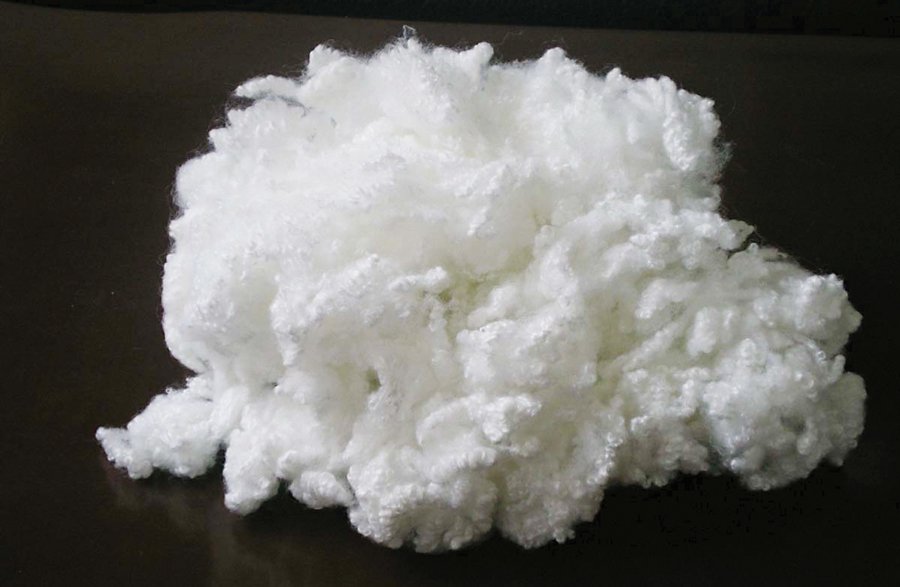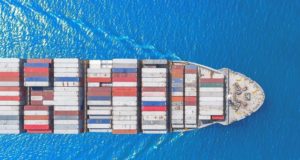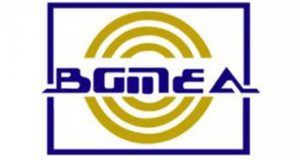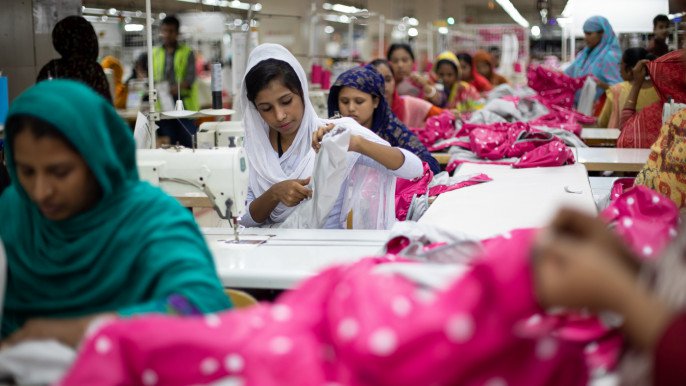Published in Dhaka Tribune on December 22, 2017

The mounting quantity of plastic waste has triggered a widespread outcry over the skyrocketing environmental pollution in BangladeshThousands of plastic bottles are being thrown away every day, and many more are just being dumped on the streets, in water bodies and pretty much everywhere else.
The mounting quantity of plastic waste has triggered a widespread outcry over the skyrocketing environmental pollution in Bangladesh and across the globe.
Seminars and symposiums are being held frequently over the issue, but little initiative has been taken to recycle the plastic waste.
So, it became one man’s duty to jump start a trend of recycling, which would benefit this generation and the next.
Realising the severe threat plastic waste poses to the environment throughout the world, Abul Kalam Mohammad Musa– a Bangladeshi entrepreneur, hatched an innovative plan to recycle the plastic waste.
Kalam stumbled upon a material called Polyester Staple Fibre (PSF) while visiting a plastic bottle recycling factory in China back in 2014.
PSF is a type of Polyester Fibre made directly from recycled pet bottle flakes and it is used widely by spinning mills to produce polyester spin yarn, which is then knitted or weaved into fabrics.
After returning home from China, Kalam began realizing his dream of recycling plastic bottles in Bangladesh, in an effort to leave a clean and liveable environment for the next generation.
This October, Kalam, the managing director of Mumanu Polyester Industries Ltd, went on to produce PSF by recycling plastic bottles, which is the first ever in Bangladesh. PSF has a high demand in textile industries across the word.
At first, all the produced PSF were being exported, but the fibre now has a demand in the local markets as well.
“One of the most talked about issue across the globe is climate change caused by environmental pollution. Plastic bottles are being dumped in every conceivable space, which is greatly threatening the environment,” Kalam told the Dhaka Tribune.
“Witnessing the sorry state of the environment, I began to search for a technology to mitigate the issue, which would be viable both economically and environmentally.”
Kalam added that during his trip to China, he learned about a high value fabric called PSF that is being produced from recycled plastic bottles.
“It took three years to implement my dream project, as it was a tough job that needed a significant amount of research and investment. There are also issues relating to health and the environment that I had to consider,” Kalam said.
Currently, the factory has a production capacity of 40 tons PSF per day, which would reach to 80 tons after the installation of a second row of machinery very soon. The company already has invested Tk150 crore. There are about 150 employees working at the factory.
What is PSF?
Polyester Staple Fibre (PSF) is a kind of Polyester Fibre made directly from PTA and MEG or PET Chips or from Recycled PET Bottle Flakes. PSF is mainly used for fibre fillings in pillows and sofa. It is also used widely in spinning to make Polyester Spun Yarn which is then knitted or weaved into fabrics.
Process
Plastic PET containers are collected from various sources and sorted by type and colour. They are then stripped of their labels and caps, washed, and crushed, then chopped into flakes. The flakes are melted and extruded to create fibre which is then crimped, cut, drawn and stretched into desired length for strength, then baled. The baled fibre can be processed into fabric for a variety of textile product end uses.
State of PSF in Bangladesh
PSF global market size was $23.16 billion in 2016 and it is expected to grow to $34.54 billion by 2025.
The regional market is expected to grow at a CAGR [compound annual growth rate] of 6.7% from 2017 to 2025 in terms of revenue.
Export of Polyesters Staple Fibres in the July-November period of the current financial year 2017-18, has grown by 270%, jumping to $3.91 million from $1.05 million in the same period of FY 2017.
Export potential of PSF
The demand for PSF is increasing at an exponential rate in the textile industry of Bangladesh, supported by the growing concern over environmental protection and sustainable manufacturing strategy in this sector.
According to a recent report of Transparency Market Research, PSF global market size was $23.16 billion in 2016 and it is expected to grow to $34.54 billion by 2025.
Asia Pacific will lead the growth of polyester fibre usage, as its utilisation in the textile manufacturing industry has been steadily increasing.
China and Bangladesh, the two largest market leaders of global clothing products are also located in Asia.
In terms of revenue, the regional market is expected to grow at a CAGR [compound annual growth rate] of 6.7% from 2017 to 2025.
Speaking to the Dhaka Tribune, Kalam said: “I am aware that there is a demand for PSF in the local market, but I have set an earning target of Tk200 crore by exporting PSF this year.
He added that the production capacity will be doubled as soon as a second row of machinery is installed at his factory.
Exploring the idea of government support, Kalam said: “If the government provides us with cash incentives against export and gives us proper policy support, export earnings would be doubled. This will in turn align with the government’s vision of product diversification.”
Currently, bottle chips exporters are enjoying a 10% cash incentive against export.
According to the Export Promotion Bureau, export of Polyesters Staple Fibres in the July-November period of the current financial year 2017-18, has grown by 270%, jumping to $3.91 million from $1.05 million in the same period of FY 2017.
Currently, plastic bottles chips are being exported. However, the Chinese government has recently imposed a ban on it this year, which could negatively impact Bangladesh’s environment.
“Encouraging investment in this sector will help government reduce the bad impact of plastic waste in this country,” said the entrepreneur.
Challenges for the newborn industry
Since it is a relatively new industry in Bangladesh, the government can help it to grow by providing cash incentives against export of PSF. As a green initiative, the government should also ease the process of providing gas connection to the factories.
“It is a timely and bold move to bring changes and set an example for the country. In encouraging the green initiative to protect the earth, the government should provide incentives for the newborn industry, that is full of potential,” Exporters Association (EAB) President Abdus Salam Murshedy told the Dhaka Tribune.
Salam pointed out that the industry will help both the environment and the country by curbing pollution and bringing in more foreign currency, as the textile industry currently has to import PSF from others countries.
“Since, raw materials are locally produced using the plastic waste, I think the government can tap into the opportunity by taking necessary initiatives. I am urging the government to make it mandatory by law to sell plastic bottle chips to the local industry on a priority basis,” he added.
Several insiders of the textile sector have also welcomed the PSF technology, and have raised their voice to support it.
“Definitely, it is a good start and the local manufacturers could benefit from it [PSF industry]. If PSF is blended properly with the cotton fibre, it will ensure competitive prices and improved quality of the RMG and textile products,” BGMEA Vice President Mahmud Hasan Khan Babu told the Dhaka Tribune.
Hasan also added that polyester fibre is being used to produce high quality products such as sportswear in Bangladesh and the country already has huge opportunity in the sector.
 CPD RMG Study Stitching a better future for Bangladesh
CPD RMG Study Stitching a better future for Bangladesh



